

Five (5) Caribbean Ministers with responsibility for water resources management from Barbados, Anguilla, The Commonwealth of Dominica, Nevis and the Turks and Caicos Islands, and five (5) senior ministerial/ government representatives from Saint Kitts, Grenada, Antigua and Barbuda, Guadeloupe and Belize have endorsed recommendations for placing greater value on wastewater in the region and its role in the holistic management of water in Small Island Developing States (SIDS).
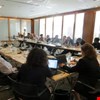
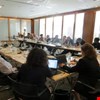
On 23 October 2013, the joint GWP-Med/OECD Project Governance & Financing for the Mediterranean Water Sector launched the national policy dialogue in Jordan during a consultation workshop held in Amman.
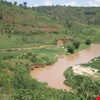
Water security is a key issue for National Adaptation Plans (NAPs) to address in East African countries.
National Adaptation Plan Global Support Programme (NAP-GSP) partner the Global Water Partnership (GWP), in collaboration with United Nations Development Programme (UNDP), the Centre for Environmental Economics and Policy Analysis in Africa (CEEPA- University of Pretoria) and other partners, is providing support a number of African countries to integrate the economics of adaptation in the context of water security and climate resilient development.
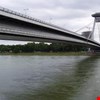
Global Water Partnership Central and Eastern Europe is looking for a part time Administrative Assistant for its Regional Secretariat.
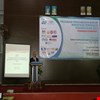
Following the successful implementation of the National Integrated Flood Management (IFM) Programme - Role of Community 2012 last year in Kuala Lumpur, which was attended by participants from the states of Selangor, Negeri Sembilan, Melaka and Johor, the same programme was again planned for this year, but held only at the State of Pahang on 7th September 2013.
The 2013 event, aimed at raising awareness and disseminating information to communities living in flood-proned areas in the State of Pahang, was organised by the Department of Irrigation and Drainage (DID) Malaysia and MyWP Capacity Building Network (MyCBNet) in collaboration with Malaysian Water Partnership (MyWP) and MyCWP.
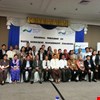
Nine countries of Southeast Asia sit together in a workshop to share and discussed about water financing in region.This workshop took place in Yangon, Myanmar on 3rd October 2013.
The goals of the workshop are to understand the financing frameworks for water resources management and development, to generate information regarding the level of public investments for WRM initiatives, and to propose potential financing schemes and mechanisms to increase the level of WRM financing.
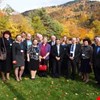
First workshop of the Integrated Drought Management Programme in Central and Eastern Europe was held on 15-16 October in Hodrusa Hamre.
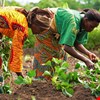
The Coordination and Change project of the Limpopo Basin Development Challenge (LBDC), under the leadership of FANRPAN, GWP SA and WaterNet, is organizing a one and a half day workshop on 21-22 October 2013 in Johannesburg, South Africa.
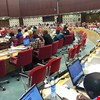
3nd Annual Conference on Climate Change and Development in Africa(CCDA-III), Addis-Ababa, Eithopia 20-24th October 2013